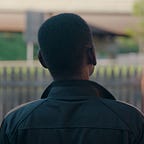Why I joined the team
Written by Alaa Seoudy
I feel that I’m connected to this story and this film in so many ways. Being an Arab immigrant makes me feel connected to our main protagonist, Nasradin, and his family. We share the same language, same culture, and a border too. After the political turmoil in my home country Egypt during what is called the “Arab Spring,” I felt unhappy and not safe to live there anymore, not necessarily fearing for my life, but being deprived of freedom of expression and unable to contribute to movies or creative works freely. This is the classic story of most of the African countries: the military controlling politics. My story and the stories of the characters in this film are interwoven. This made me want to be part of it: I wanted to do something for those I consider “my people”.
I am also a big fan of Frederick Wiseman’s work: he has a strong influence on how I see non-fiction films. I remember when I first saw High School (1968), I was shocked by his style and his authenticity. I thought that is the truest that cinema can get. He just let his camera run, and capture the moments in front of him. I was eager to learn how to edit, organize, and tell stories the way Wiseman does. I remember when I met Loch and Zach and spoke about Wiseman’s work, and how influential it is to me, and how much I consider him one of the greatest filmmakers of all time, Loch was thrilled to hear that. He spoke about how they were trying to use the Cinema Verité style, the main style that Wiseman praised and believed in.
When Loch introduced me to The Last Refuge project in Feb 2019, they were doing their last visits to Utica, and the whole team was about to focus on the editing. Zach walked me through it and helped me navigate more than 250 hours of footage. I was fascinated at the very solid way he had organized all of that. While I was digging deeper into the footage, I was glad to find all these hours of Cinema Verité in it. I was impressed by the ability of Adam and Loch to capture these intimate moments, especially with the Azein Family. Loch and Adam don’t speak Arabic, and so didn’t understand a single word what they are saying to each other. Nasradin is the only one who speaks English. But they were always, in my opinion, alert and had this instinct about what is going around them, following the Azeins body language and their interactions. They captured great moments that I have gotten to translate and edit. I was always smiling watching hours of raw, unedited footage of the Azeins. This intimacy is something that I think is very hard to capture even when you do understand the language being spoken, but they captured it in a very beautiful and honest way.
The film could have been easier to finish it if it was only focused on some talking head interviews with the characters and some b-rolls on top of that. But spending three years with your subjects, getting to know them, and getting closer to them, building a solid relationship with them, seeing them fall, stand-up, and fall again not only gives the film a deeper, more emotional beauty, it also gives it a unique authentic drama that is much louder and more powerful than words conducted in interviews.
I was not only enjoying my time around very nice people who I’m learning a lot from, but I was also sharing very happy moments speaking about art, cinema, and old Hollywood films. I remember the time when Zach was teaching me the rules of Baseball, a sport that is not very popular in my home country.
As my relation to the film and the team was evolving, and as I watched the change in the life of the characters, whom I’ve never met in real life, I had my first baby boy. I was so happy having him. But I had very mixed feelings toward that. I truly felt so lucky to have him here in America. I’m glad that I, in a way, provided him a better place to grow up and live. Of course, me and my wife, will keep him connected to his Egyptian roots. We both see that as an important part of his future life. But of course I’m happy that he’ll get a better education and better healthcare here in America. This is very similar to what happened with Nasradin’s family, who had their third daughter in America, and were happy for her to be the first American in the family. I guess these were my feelings too.
While I am overwhelmed with such strong happy emotions, I am still wondering about the thousands of children who are in the middle of conflict zones, in the Middle East and elsewhere in the world. Thousands are forced to leave their homes and live in refugee camps, living in bad conditions, and who might not get the chance to get a proper education. What will happen to them?
Originally published at https://www.lastrefugedocumentary.com on February 19, 2020.
